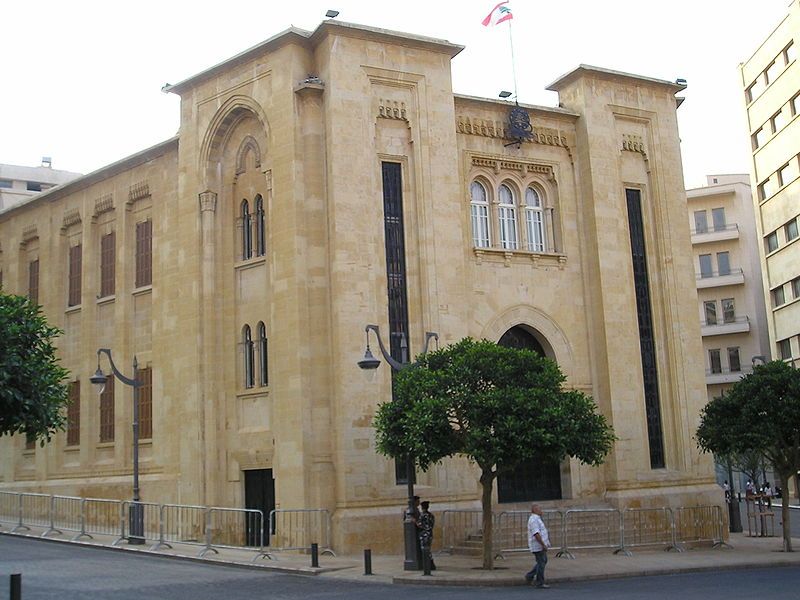There are two ways to open a bar in Beirut. The first is to fill out all the paperwork and be subjected to countless inspections over a long period of time, by the end of which one may not even be granted a permit. The second, and easier way, is to simply slip the appropriate amount of money to a well-placed official. While the first way may be more gratifying, the second is often the more effective.
The countless palms that are greased each day in Beirut add up to a city and an economy weighed down and beholden to a widespread culture of corruption. In the Global Competitiveness Report for 2013, Lebanon ranked dead last in the world in the “public trust in politicians” category. And in the most recent Corruption Perceptions Index (CPI) from 2012, where experts and opinion surveys assess the perceived level of corruption in a country, Lebanon ranked 128 out of 176 countries.
This perception extends to the average citizen as well. Of Lebanese polled in 2012’s CPI, 77 percent said they felt the government’s attempts to fight corruption were ineffective or very ineffective, and 68 percent said that political parties are corrupt or extremely corrupt. The same number said they believed Lebanon’s parliament to be corrupt or extremely corrupt.
“The question remaining on most people’s minds is, ‘Are the ministers working for the citizens or to increase the influence of their political parties?’” says Badri El-Meouchi, an anti-corruption expert. “The most powerful actors [in Beirut] are ministers and not the prime minister or the president. They have the authority to do whatever they want.”
Beirut today is a sort of libertarian city where laws and regulations are overwhelmed by vast amounts of bribery and cronyism. It’s a corrosive system that widens the wealth gap, pushes poorer communities into drugs and religious extremism, and threatens the short- and long-term viability of the entire country. Corruption also permeates the business realm, making it difficult for educated Lebanese without the right clout or connections to find work; there’s even an Arabic word – wasta – that describes the need to know the right person to get a job. This has contributed to Lebanon’s alarming brain drain – today, one in three Lebanese say they’d leave the country if they could.
A lot of these issues date back to the brutal Lebanese Civil War that raged from 1975 to 1990. While corruption certainly existed before the war, it became much more deeply ingrained in Lebanese culture during that period as various militias sliced up the city of Beirut and Lebanon’s resources. Today, political leaders, many of whom are former warlords, continue to exercise similar influence over those resources.
“The real problem is at the top,” says El-Meouchi. “There’s not enough pressure because [under the current political system] the political elite benefit.”
Perhaps for that reason, anti-corruption groups are focusing on the next generation, equipping them at an early age with a roadmap for ethical business and political practices. The Lebanese Transparency Association, a branch of the anti-corruption coalition Transparency International, has two youth-focused initiatives: Musharaka and Local Governance Through Youth Municipalities (LGYM). Both aim to give Lebanon’s youth experience in politics while simultaneously imbuing them with a sense of good governance. Musharaka, for instance, works in tandem with the United Nations Democracy Fund (UNDEF), organizing workshops and trainings for Lebanese youth from 15 municipalities to teach them about things like the public budget, lobbying and leadership skills. It then holds “elections” in which the young candidates conduct their own campaigns; winners form a council that assesses the needs of various villages. Those participants then train the next incoming group, passing along the ideals of transparency and accountability.
The Lebanese Transparency Association has also launched a number of projects to fight corruption, including the Lebanon Anti-Bribery Network and the National Network for the Right of Access to Information. Lebanon’s Anti-Bribery Network, for instance, is currently working on developing a guidebook as well as a code of ethics for small and medium business enterprises.
Such projects, however, while admirable, are more about advocating ideals than directly tackling the institutional corruption that has long been present in Lebanon. One effort to bring the problem down to earth is the website Rashwe.com, on which citizens can share their claims of being pressured to pay bribes. Rashwe currently has had 94 claims filed for a total of $207,813. That money hasn’t made its way back to its owners – and there’s a good chance it never will – but the site’s founders believe that creating the record of bribery itself is important.
“Having data on briberies in Lebanon should induce politicians or concerned bodies to act more towards abolishing it,” wrote Rashwe founder Rabih Sfeir in a powerpoint presentation sent via email.
Many experts believe transparency is the best medicine, a measure of which was achieved in Turkey, which put its former prime minister, Mesut Yilmaz, on trial for corruption. It is unlikely Lebanon will mimic the Turks in that regard anytime soon, especially in the current political climate, where the nation is dangerously fragmented and many citizens have nearly given up hope all together.
But a more applicable solution may be found in Russia, where, like in Lebanon, a large segment of the population are entrepreneurs (and no stranger to paying bribes to get anything done). The Center for International Private Enterprise (CIPE) has partnered with USAID to organize Russian business leaders who have a shared and vested interest in fighting corruption. In 18 regions of Russia, CIPE has built coalitions of professional associations and chambers of commerce who are working toward creating a more transparent business environment.
Such a strategy could work well in Beirut, where the government is unlikely to take the lead. The key is getting the average resident on board.
“People are apathetic and say, ‘What difference can I make?‘” says El-Meouchi, adding that the biggest challenge in Beirut today is to change that perception. “The public must ask what we can do together, not what can I do alone. You can’t do anything alone.”

















